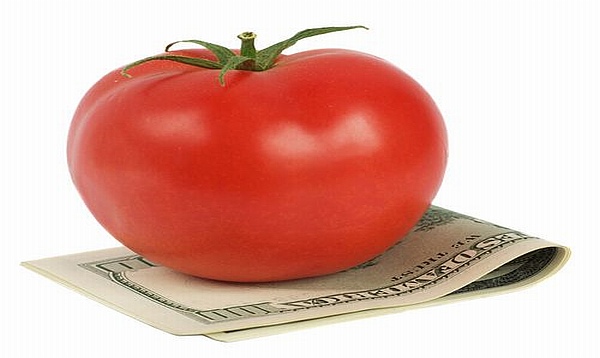Mexico City, Mexico - Mexico's government and farmers have offered to accept higher prices for tomatoes exported to the United States in a bid to avert the scrapping of a 16-year-old agreement, a senior Mexican official said.
Mexico's Deputy Foreign Trade Secretary Francisco de Rosenzweig said the offer was extended during bilateral meetings to resolve the dispute, which has been dubbed the "tomato war."
The Mexican government began talks with US authorities after Florida growers in June requested the cancellation of the 1996 accord regulating tariff-free exports of Mexican tomatoes to the United States.
The existing bilateral pact is known as a "suspension agreement" because the US Commerce Department in 1996 halted an anti-dumping investigation against Mexican growers and agreed to a deal setting a minimum price for imports of Mexican tomatoes.
The accord has been renegotiated on two occasions. The most recent extension, signed in 2008, expires this year.
Rosenzweig said Mexico's offer was discussed in the first two weeks of October with US Commerce Department officials, noting that it calls for the agreement to be extended to all Mexican tomato growers, 15 percent of whom are not covered by the current deal.
He said it also calls for enforcement mechanisms to be strengthened and for the floor price for Mexican tomatoes entering the United States to be raised by between 18 percent and 25 percent, depending on the product.
"This offer is unprecedented in the sixteen years that the agreement has been in force," the Deputy Foreign Trade Secretary said.
He added that Mexican officials are expecting a quick response from their US counterparts so a deal can be struck to renegotiate the accord.
In late September, the Commerce Department announced a preliminary position in favor of terminating the deal.
Mexican media, meanwhile, quoted Economy Secretary Bruno Ferrari as saying it was "obvious" that this summer's request by the growers in Florida, a key swing state, was aimed at putting pressure on the Obama administration ahead of the November election.
In a statement last month, Florida Tomato Exchange director Reggie Brown slammed the agreement as "outdated and failed" and said the Commerce Department's preliminary position was "welcome news to domestic growers" struggling to compete with cheap exports from Mexico.
In addition to Mexico, US agricultural and business groups have also expressed opposition to ending the pact, with the Fresh Produce Association of America saying that US producers could request the imposition of anti-dumping duties on Mexican tomatoes if the agreement were to be scrapped, potentially triggering a costly trade war.
The United States imported $8.5 billion worth of farm products from Mexico last year, more than from any other nation. Tomatoes accounted for nearly a quarter of the total.


